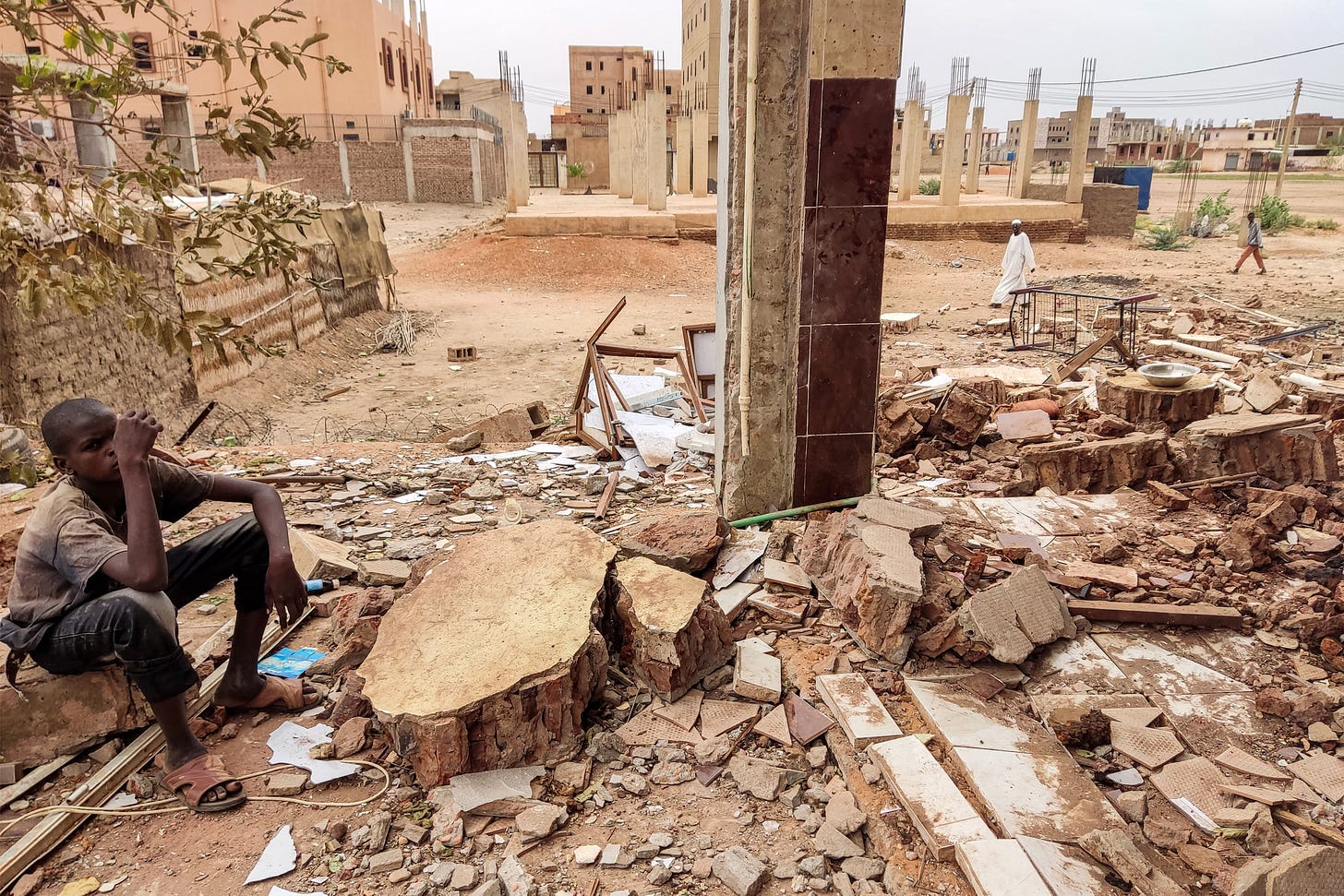It is the nature of news coverage that the less relevant a story seems to viewers or readers, the less attention it tends to get. That is understandable. Time is limited. We have many concerns close to home. There is a limit to how much we can process.
But our world is small, and we have a duty to try to understand and empathize with what is happening in seemingly distant places. News organizations and even modest efforts like Steady should try to bring awareness and context to people, places, trends, and important events that are occurring and are being overlooked.
While Russia’s invasion of Ukraine has mobilized the world to act, another war is raging that is receiving much less urgency: Sudan. Since April, two warring generals — one controlling the Sudanese Army and the other a paramilitary group called the Rapid Support Forces (RSF) — have plunged the North African nation back into civil war.
Thousands have already been killed, and an estimated 2.2 million people have fled their homes. The capital, Khartoum, has been wrecked by violence, and the Darfur region in the western part of the country — already the scene of decades of ongoing genocide — is facing more terror and mass death.
Civilians are in the crossfire, and aid is hard to get into the country. There are reports of widespread sexual violence, targeted killings, and mass disappearances.
There are some signs that the rest of the world is starting to act. The United Nations announced $1.5 billion in pledges of aid from a donor conference it held in Geneva, with Germany and Qatar leading the way. The United States has pledged an additional $171 million and worked with Saudi Arabia to broker a recent cease-fire.
But reports suggest that violence is continuing, along with mass looting and attacks on civilians. Aid groups in the region warn that it will take sustained involvement from the international community to avert escalating disaster.
“The scale and speed of Sudan’s descent into death and destruction is unprecedented,” warned UN Secretary General António Guterres. “Without strong international support, Sudan could quickly become a locus of lawlessness, radiating insecurity across the region.”
There are a lot of challenges in our world, and there are finite resources. As needs mount, there is a very real concern of “donor fatigue.” There are also many factors that can limit how effectively we can provide help. Civil wars are particularly complex. But none of that diminishes the trauma and tragedy for the people of Sudan. And it raises real questions about how we prioritize our efforts and aid with the rest of our global community.
The war in Ukraine has rightfully been framed as a repelling of Russian aggression with grave implications for our world order. But a flood of refugees in North Africa and the destabilization that will bring to the region should also be a top concern. Even more important is recognizing the mass suffering that is underway. And we should be particularly diligent in trying to combat ethnic and religious violence, like the kind that has fueled decades of bloodshed in Sudan.
Sudan and its people matter. Africa matters. The Southern Hemisphere matters. All of these places have traditionally been overlooked and under prioritized. But a stable world order requires that we pay attention — as does our common humanity.
This effort is supported by the Steady community. If you aren’t already a member, please consider subscribing.




You're so right, as always. Sudan matters, Ukraine matters, everywhere matters. These are human lives at stake. It's too easy to think 'it's over there somewhere' and it doesn't affect our daily lives. I wonder sometimes if, as you note, donor fatigue is nearing an apex and along with it, emotional stress and fatigue from so many crises on a daily basis. It's overwhelming! But we can't let that stop us from caring, helping and stabilizing dangerous regions. But for the grace of God..it's not "us" today.
I think the reason the world rallied around Urkarine is that the citizens are mostly white and the reason the world ignores the situation in Sudan is because the citizens are mostly Black.